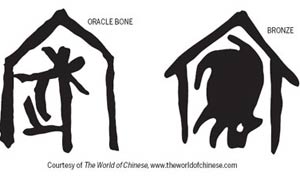Contain vegetable prices
Updated: 2011-10-11 08:06
(China Daily)
|
|||||||||
Reducing the prices of such daily necessities as vegetables is the most practical approach to cutting the cost of living for urban residents. And this is exactly what the State Council is trying to do by encouraging rural villagers to sell the vegetables they have grown directly to residents at morning or temporary markets in cities.
A State Council meeting at the weekend decided that preferential policies should be implemented to establish agricultural produce markets and broaden channels for the transportation of such goods.
The meeting also decided that rural villagers should be exempted from fees of any kind for selling vegetables or other agricultural products and local governments are required to do a good job in supplying relatively cheap and quality vegetables for residents.
Such decisions are more than necessary as the majority of residents are feeling the pinch of the ever-increasing prices for vegetables and other staples such as pork. In the last year the price of pork has jumped by more than 50 percent.
Even in the summer months this year, the harvest season for vegetables in most parts of the country, the prices remained considerably higher than they used to be in the past during the same season.
Rapid urbanization has greatly reduced the area of arable land for vegetables in the suburbs of many cities. Statistics show that very few cities can provide more than 30 percent of the vegetables their residents need. As a result, most vegetables have to be transported from major production bases to cities, increasing costs by a large margin.
In addition, some business people hoard agricultural products until the prices rise, which has resulted in the price hikes of vegetables such as garlic and onions and even potatoes.
When the threshold for personal income tax was raised to 3,500 yuan ($530) from the previous 2,000 yuan, the number of residents paying the tax decreased from 84 million to 24 million. That means the majority of China's wage earners earn less than 3,500 yuan a month.
For them, the rising prices of vegetables, fruits and pork directly affect the quality of their lives. With their expenditure on food continuing to rise they have to think twice before opening their wallets for other purposes, which is unfavorable to the nation's drive to encourage domestic consumption.
So the State Council's decision addresses a major concern of the majority of urban residents. If the decision can be implemented to the letter and the prices of vegetables be lowered or kept stable, it will mean even more to wage earners than simply increasing their income.
(China Daily 10/11/2011 page8)









